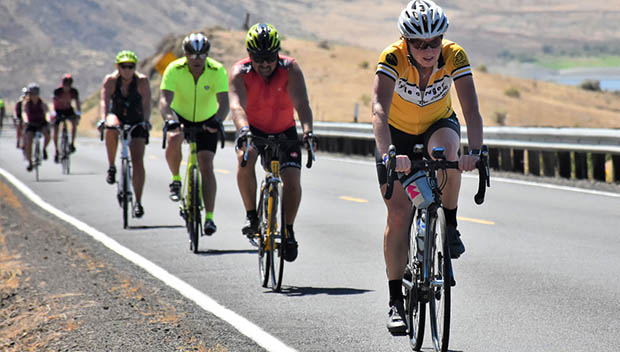
Photo/Baker County Tourism & Travel, Flickr
Gran fondo means "big ride." These fun cycling events vary in distance and difficulty. Gran fondos are usually between 100K and 200K, and many offer more than one distance—with the longest considered to be the premier event. Though fondos are not actual races requiring a racing license, many participants treat them as one and go hard from the starting gun to the finish line. But who's to say you can't ride a gran fondo as another enjoyable day on the bike with friends?
Since gran fondos are organized events, expect to be provided with a bib number, well-stocked aid stations, turn-by-turn navigation markers emblazoned on the road and in downloadable GPS files and printable cue sheets. Depending on venue, some rides may have some climbing, with timed segments and overall finish time and placement ranking. One notable distinction between gran fondos and licensed races are that gran fondos provide well-stocked aid stations for all riders to be able to stop, rest and refuel as needed. If you've never done a gran fondo, here are a few tips to get you going and help you prepare for some big distance cycling.
Get a Bike Fit
Before you embark on your gran fondo preparation, get a bike fit. A good bike fit will help prevent injuries and allows your bike fitter to make necessary adjustments to your ride so you'll be comfortable and in the most efficient position.
Zen and the Art of Bike Maintenance
Get your bike tuned up. There's nothing more frustrating than having to make frequent stops due to mechanical issues, or even end your day early—and no one wants to be that rider on a bike with a squeaky drivetrain. Once your bike is ready for riding, keep it that way by practicing good bike maintenance. You'll be more at peace and at one with a well-functioning bicycle.
The Right Gear
Having the right gear isn't about looking good but rather staying comfortable for the hours of riding ahead. A good cycling jersey, comfortable cycling shorts and the best saddle for you will keep you comfortable, reduce unneeded drag thanks to an well-fitting kit and keep you chafe-free. You'll also want to be riding on durable bike tires, so you won't be as prone to getting flat tires. If you're not using clipless pedals with cycling shoes, consider these upgrades to optimize your efforts on the bike—just make sure you have plenty of practice with them ahead of the race.
Get on a Training Plan
Would you take an exam—and expect to pass—without studying? A gran fondo will test your fitness and mental toughness. You'll want to be fit, which means long-ride endurance, the ability to go hard for short periods of time and then recover and do it again. Figure out your planned pace and how long that means you will be on the road, that way you can study the route and any elevation changes you may come across along the way. You'll need to train to be able to handle the effort and hold a good body position for the duration. Getting on a cycling training plan will help you to perform the task with the most economical effort.
If you spend a lot of time indoors on a stationary trainer, you'll still want to get outside and ride the road to practice bike handling skills, riding in groups and the feeling of how you and your bike move across varying terrain.
Group Riding Etiquette and Skills
Since gran fondo means big ride—in both distance and number of participants—expect to be cycling with others. If you can, practice group riding skills and etiquette: pacelining, signaling, cornering, knowing if it's OK to join in with an existing group and just being comfortable in relatively close quarters on your bike. A group of cyclists will cover distance more quickly than solo riders thanks to drafting and greatly enhances the social aspect of cycling as well.
MORE: 10 Group Ride Etiquette Tips for Cyclists
Climb—and Descend—More
Practice climbing, especially pacing yourself on climbs, so you won't blow up with miles to go and hate yourself for going too hard too soon. You'll also want to practice being comfortable going downhill, as well as effectively using your brakes only when you need to, so you can reap the reward of your uphill effort.
Good Nutrition Is Key
Eat a good breakfast. Seriously. This might be one of the single most important ways to have a great cycling experience. It's easy to think you can skip aid stations early on, but remember that it will be a long day, and you don't want to get into a fuel deficit right out of the gate. While nearly all gran fondos provide participants with mid-ride snacks, you should still bring your own nutrition with you. The moment you need fuel may not always align with aid station locations, so you'll want to be prepared so you can get what you need and make it to the next check point.
Bonus: If you're treating the gran fondo as a race, you'll be able to minimize time at aid stations if you've brought your own nutrition. When you do make a stop at a feed zone, take a few extra gels or other snacks, and stash them in your jersey pocket. A successful ride will be one on which you don't bonk, so be prepared.
Stay Hydrated
Even on cool days, you need to replace what you sweat out. Experiment with different electrolyte and carbohydrate replacement options to see what works best for you. Drink early and often to prevent muscle soreness and cramping. And always remember to top off your bottles at the aid stations. Hydration is something you never want to run out of, especially if it is a warm or hot day.
Have the Right Supplies and Know How to Use Them
You'll want to bring along two or three spare tubes, CO2 cartridges and some tire levers. Practice changing a flat tire—it's a valuable skill you need to master—so you can be back on the bike in just a few minutes. You might also want to bring along a cycling multitool just in case anything unexpectedly comes loose mid-ride.
Enjoy the Day
This goes without saying, but don't forget to have fun. Take in the views, meet and make new cycling friends, live the #bikelife and smile—even when you're suffering on a climb that just doesn't end. Because any day on the bike is a great day.
READ THIS NEXT: What Is a Gran Fondo Cycling Race?


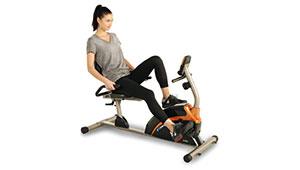


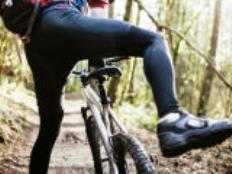
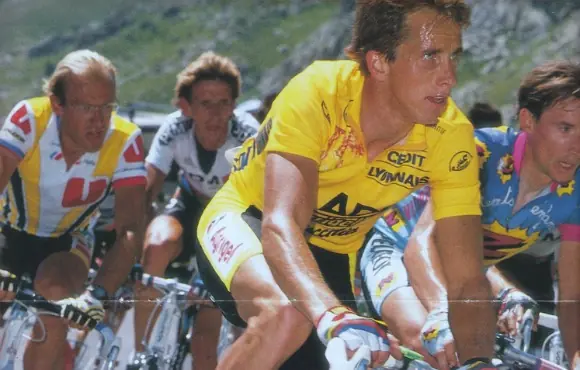
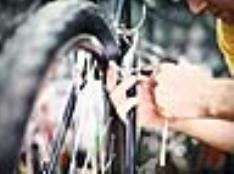
Discuss This Article